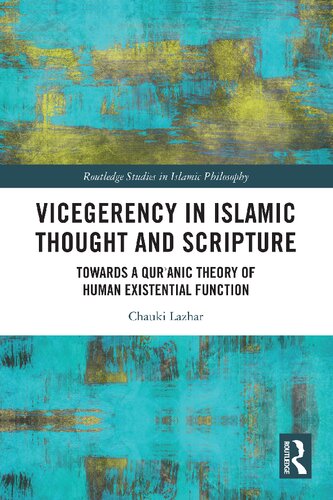

Most ebook files are in PDF format, so you can easily read them using various software such as Foxit Reader or directly on the Google Chrome browser.
Some ebook files are released by publishers in other formats such as .awz, .mobi, .epub, .fb2, etc. You may need to install specific software to read these formats on mobile/PC, such as Calibre.
Please read the tutorial at this link: https://ebookbell.com/faq
We offer FREE conversion to the popular formats you request; however, this may take some time. Therefore, right after payment, please email us, and we will try to provide the service as quickly as possible.
For some exceptional file formats or broken links (if any), please refrain from opening any disputes. Instead, email us first, and we will try to assist within a maximum of 6 hours.
EbookBell Team

5.0
78 reviewsThis book explores the reasons for the creation of humanity on Earth from the perspective of ancient and contemporary Muslim thinkers, aiming to lay the outlines of a Qurʾanic theory of human existential function.
The author proceeds from the assumption that, until now, contemporary Islamic scholarship has suffered from the absence of theorisation about a Qurʾanic conception of human existential function (vicegerency), lacking a unified philosophical and epistemological frame of reference. Challenging common perceptions among contemporary Muslim reformists regarding the human existential function, the author examines both classical and contemporary thought as well as conducting a thorough and comprehensive analysis of Qurʾanic passages that ground the theory of vicegerency within a cosmic scheme. Ultimately, a new approach for understanding the human existential function from within the Qurʾanic worldview is proposed. For the first time then, this book offers an integral induction and categorisation of Qurʾanic teleological concepts, combining them within a coherent framework that reveals the outlines of a vicegerency theory and a Qurʾanic worldview.Suitable for both scholars and laypersons, the book serves as a landmark textbook in the fields of Islamic Philosophy, Theological Anthropology and Qurʾanic Studies.